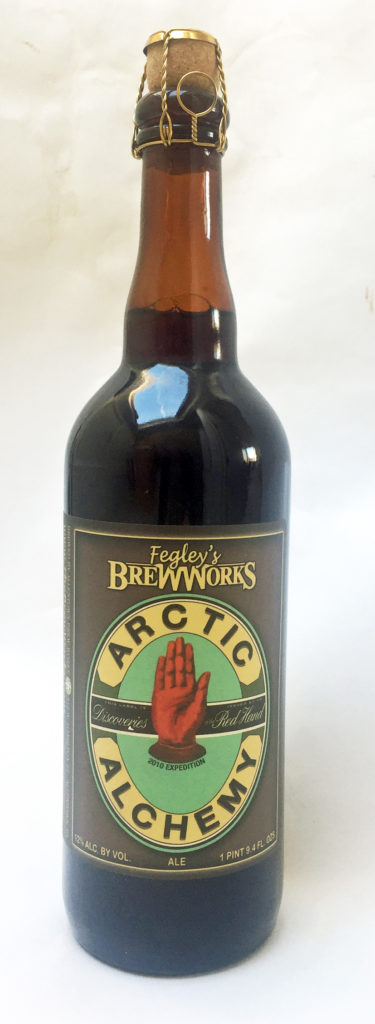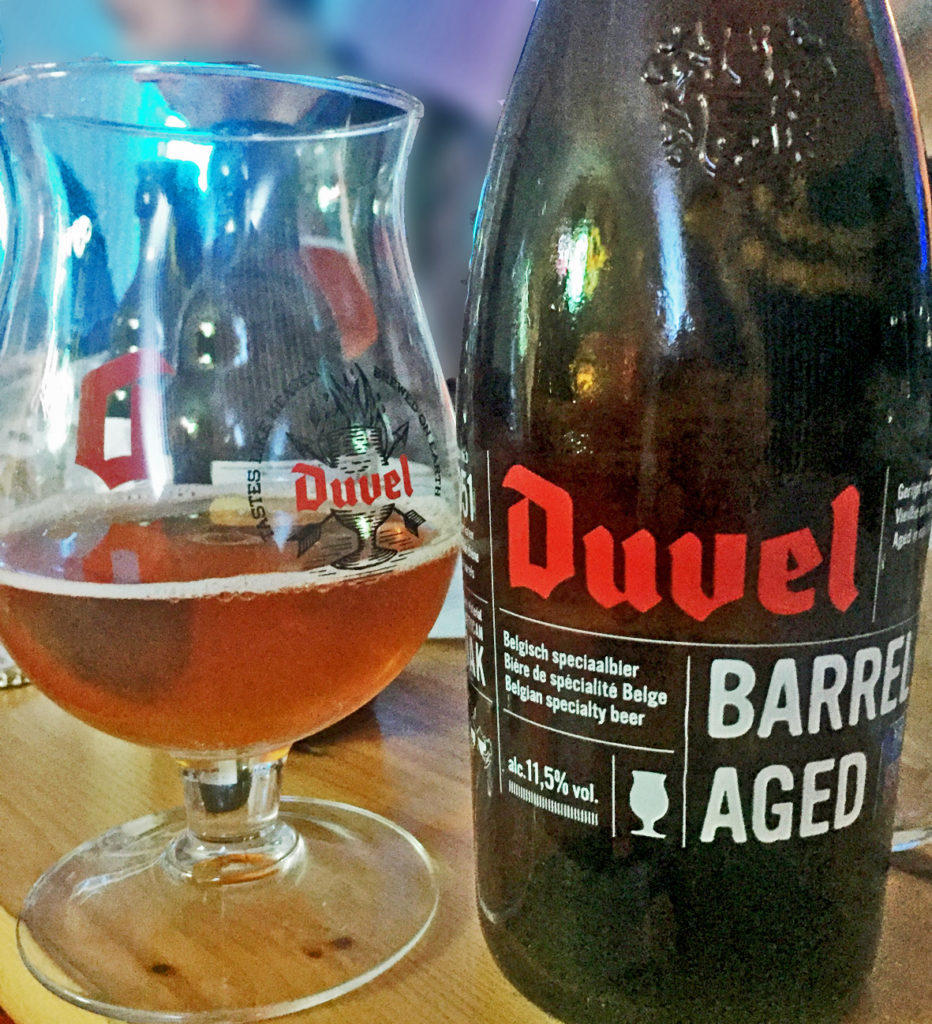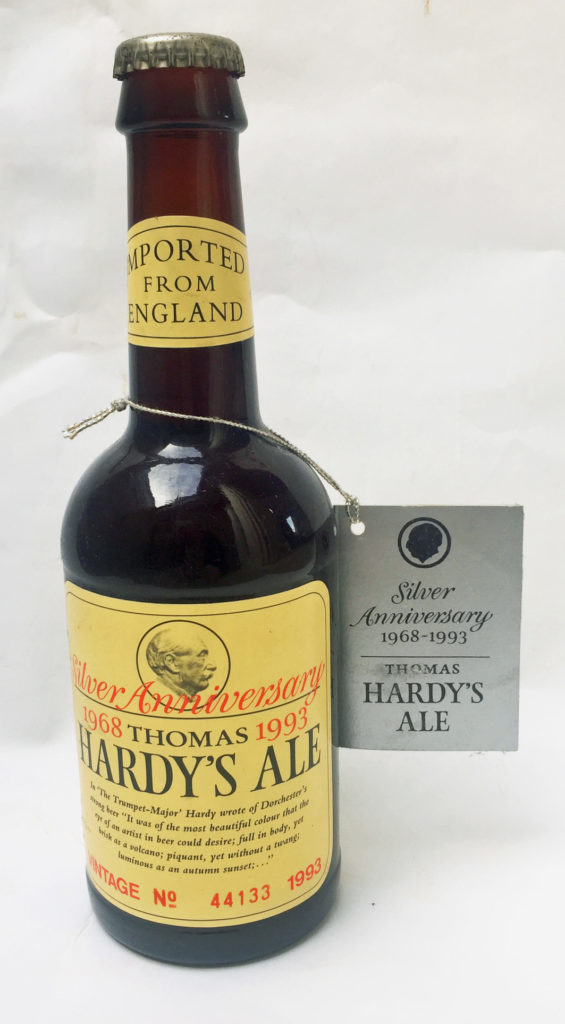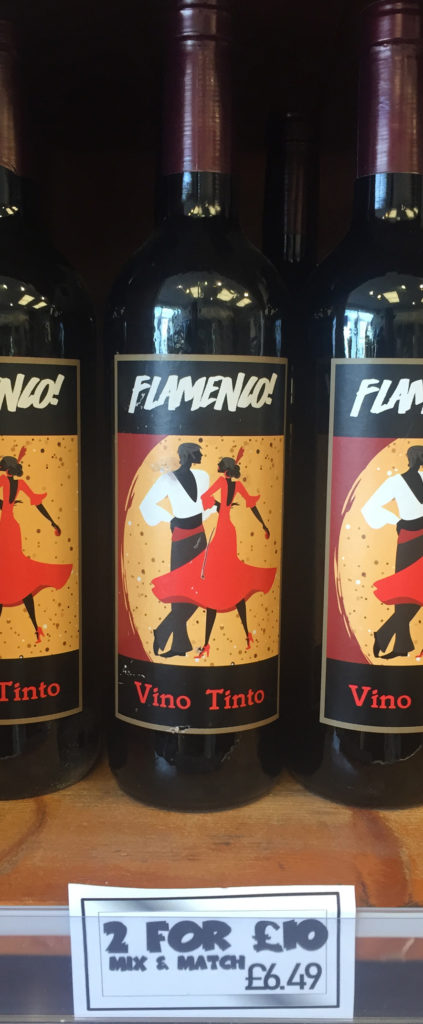
It is as well the Portman Group wasn’t around when Admiral Sir Edward Belcher was fitting out his expedition to the Arctic in 1852 to try to find out what had happened to Sir John Franklin and his gallant men, lost on their voyage in search of the North West Passage seven years earlier. The Portman Group would have tried to tell Sir Edward that the Arctic Ale he was taking with him to sustain his men, brewed by Allsopp’s brewery in Burton upon Trent to around 11.25 per cent abv and shipped in “reputed quarts”, a whistle under 75cl, smashed its guidelines, being 8.4 units of alcohol in a single container, or more than twice as much as was permissible. Sir Edward would doubtless have replied in sailorly fashion, leaving everybody’s ears severely scorched.
The Portman Group’s “Code of Practice on the Naming, Packaging and Promotion of Alcoholic Drinks”, which has just been updated, is fundamentally an exercise in arse-protecting by the drinks industry, an attempt through “self-regulation” to persuade the government not to listen to the nanny-state neo-prohibitionists who would like, in lieu of total prohibition, as many restrictions on the sale of alcohol as possible, accompanied by as much tax as the market will bear. The group, the self-styled “drinks industry watchdog”, is there to assure politicians that the makers of alcohol are doing sufficient to prevent harm caused by alcohol for there to be no need for any more government legislation.
Unfortunately you can never satisfy the wowsers enough without banning alcohol altogether, and the Portman Group appears to be incapable of standing up to people like the neo-prohibitionist Institute of Alcohol Studies and pointing out that whatever harm alcohol does, it brings much pleasure to a far greater number of people than it hurts. The result is the pursuit by the group of policies that will actively reduce the legitimate pleasure possible, in particular, from the consumption of strong beers such as barley wines and imperial stouts, with their massive depths of flavours, apparently under the misapprehension that the only people who want to drink a beer over seven per cent ABV are tramps sitting on park benches, and that tramps need to be prevented from getting drunk

SIBA, the small brewers’ group, has been getting seriously upset at changes in the new guidelines over the strength of beers, with its chief executive, Mike Benner, declaring that they “threaten new, innovative speciality beer styles like Imperial stouts, porters, IPAs and British interpretations of traditional strong Belgian styles,” and “SIBA is disappointed the Portman Group is pressing ahead to introduce new guidance, which says that ‘single serve’, non-resealable containers shouldn’t contain more than four units of alcohol.”
But this isn’t new at all: the attack on strong beers has actually been Portman Group policy for years – the guidelines already specifically stated that “putting in excess of four units in a non-resealable single-serve container indirectly encouraged immoderate consumption of alcohol, contrary to rule 3.2(f).” Carlsberg was found in breach of the guidelines in 2015 over its 500ml cans of nine per cent abv Special Brew, which contained 4.5 units of alcohol, which is why it is now only available in the UK in 440ml cans at 7pc abv, which is three units.
That ober dicta was based on the Chief Medical Officers’ drinking guidelines, which, at the time, suggested no more than four units of alcohol for men per day. When the CMOs came out with new guidelines in 2016 which dropped the daily limit in favour of a weekly one, the rug was tugged sharply from under the Portman Group’s justification for ruling against Special Brew, since producers could argue that as long as a drinker wasn’t having a can every day, there was no problem. They haven’t said so, but I’d bet what worried the Portman Group after the CMOs changed their line was having to argue in court in support of a four-unit limit per can or bottle if they were challenged.
In its summary of the responses to the consultation document it put out before the new guidelines were formulated – I recommend reading it – the Portman Group declared that it has decided that in future “containing more than four units becomes a contributory rather than an absolute factor: if the producer is able to demonstrate that mitigating factors should be taken into account – for instance, premium quality of the product, whether the product is typically decanted/shared, price at which it is typically sold, accompanying promotional material, et cetera.” In other words, convince us you’re an aspirational, upmarket product, preferably designed to be shared, and not tramp juice meant for solitary sipping while surrounded by pigeons, and we’ll think about letting you off. So in fact the new guidelines represent a slight relaxation of the previous restrictions, and if Carlsberg were to print “please share responsibly” on cans of Special Brew it might, perhaps, get away with putting the size of the cans back to 500ml and the strength up to nine per cent again. (Errr – though probably not …)

However, the Portman Group is still declaring that “single-serve, non-resealable containers that contain upwards of six units will be difficult to justify, even with mitigating factors,” with this upper limit “in line with UK binge drinking measure which is currently set at six units of alcohol in a single session for men and women.” It says its research shows that while nearly two thirds of people think a 75cl bottle of wine is for sharing, fewer than half think the same about a 75cl bottle of beer, making that bottle “single-serve”, according to its rules, and thus a container that should not have more than six units of alcohol inside. If a 75cl bottle of beer is “likely” to be regarded as designed to be drunk by one person, this would rule out any beer over 8 per cent abv in a 75cl bottle.
Among the beers that break the new Portman Group guidelines, and therefore face a potential ban, by being stronger than eight per cent and sold in 75cl bottles, are beautiful brews from the US, such as Brooklyn Brewery Black Ops, or Local 2, Rogue’s XS Old Crustacean barley wine and Lost Abbey’s 10 Commandments; a rake of great beers from Italian craft brewers, who go for 75cl bottles in a big way – pun semi-intended – including the wonderful Xyauyù Barrel from the Italian brewer Baladin; and a fair number of beers from the Netherlands and Belgium, including Chimay Grand Reserve, De Molen Hel & Verdoemenis (and several other De Molen beers), Duvel Barrel Aged (I had some of the third iteration of that earlier this week: excellent beer, like oak floorboards smeared with blood oranges), and Dupont Avec Les Bons Voeux.
There are not so many examples of big beers in big bottles from the UK (indeed, not the least problematical aspect of this policy is that since it vastly disproportionally affects overseas producers, and the Portman Group is funded by UK producers, there is a very good argument for saying that it represents an attempt at an illegal restraint of trade – not that that may matter so much in a post-Brexit world). Sadly, unlike Belgium or the Netherlands, Britain has long lost that tradition of hefty strong stouts and barley wines in anything but nips: 33cl at best. Even a 12 per cent beer in a 33cl bottle just misses a rap on the knuckles from the Portman Group, at 3.96 units. But half a degree over that and you’ll be on the carpet and asked to explain yourself: what mitigating factors are there that we should wave you through and let your beer be sold to responsible adults perfectly able to make their own purchasing decisions without nanny hovering?

And if you’re thinking of reproducing great beers from the past such as Allsopp’s Arctic Ale, in the original style of bottle, to give a good change of some bottle-age (because smaller bottles age worse than larger onea, for a variety of reasons), fuggedaboutit: you’ll be red-carded as soon as some do-gooder spots your beer on the shelf and grasses you up to the lasses and lads at 20 Conduit Street. The result is, indeed, as Mike Benner says, that innovation by British brewers is being cramped: we had a long history in this country of super-strong beers, from the thumping pale ales that the squirearchy used to brew on their estates in the 18th century as a substitute for bandy during our many years of war with France to the huge Burton Ales we exported to Russia and (somewhat surprisingly) Australia, and, of course, all those thumping stouts that eventually earned the name “imperial”. But if the Portman Group prevails, anyone trying to reproduce those beers from the past in any bottle size worth laying down will have to prepare a lengthy brief justifying themselves for daring to exceed four units a bottle. It seems clear the “watchdog” is hoping its barking will scare away strong beers entirely.
I cannot avoid seeing a strong streak of snobbism in this. The Portman Group gives the impression that it still sees beer as an inferior drink, and beer drinkers as people who need protecting from themselves. My local off-licence will sell you two 75cl bottles of 12 per cent abv Spanish red wine for the equivalent of £5 a bottle. If someone were selling large bottles of 11.5 per cent Arctic Ale at that price, there would be howls, from the Portland Group to the Daily Mail. But it’s OK: wine drinkers are nice people like us, and don’t need to be policed.


I ‘m not sure that it is snobbism but rather more an opportunistic attempt to blackball competitors who potentially threaten the profitability of the eight members of the portman group.
To me it is simply an attack against their competitors!
None of the the members of the portman group are ever likely to produce the small batch, high quality, high strength beers that they are attempting to suppress by their advocated policies and recommendations.
I would hope that people will see this for what it is, an attempted protectionist move on the part of the business interests of the eight members of the portman group against their competitors.!
You’re absolutely right, Brian, and I woke up this morning realising that, since this affects overseas producers far more than UK ones, there is a strong argument for saying it’s an illegal restraint of trade. Not that that may matter so much in a post-Brexit world … but a line to that effect has now been inserted.
Notice that the rules mention a “non-resealable” bottle. This suggests a loophole: just use bottles with a flip-top (like on Grolsch bottles) and there’s no problem!
Or indeed a screwcap, or a wired cork.
Of course this restriction is unreasonable, but it seems a touch hyperbolic to claim it represents the end of strong beers. All it’s doing is restricting the size of containers they can be sold in. In living memory strong beers have never been sold in large bottles in the UK anyway, and referring to beers supplied to Franklin’s Arctic expedition is a complete red herring.
If it is to be opposed, it needs to be opposed for all beers, not just expensive ones drunk by middle-class beer snobs.
“it seems a touch hyperbolic to claim it represents the end of strong beers” – it would be a touch hyperbolic to claim I said that. I said they were threatening our strong beer tradition, not bringing it to an end.
That’s simply not true. I have half a dozen 75cl bottles of assorted stouts and barley wines in my cupboard right now, ranging from 12 to 16% and all by UK brewers.
Indeed, while reading, I immediately thought, last time I saw Rogue Old Crustacean (in Denmark) it was in a bottle with a bottle cap, but also a flip-top to reseal it
BrewDog have already faced the indignation of the Portman Group and realising it is only a voluntary Code issued this apology https://digitalnewsroom.media/brewdog/dead-pony-portman-group/
1. BrewDog are arseholes.
2. It is not a voluntary code if you depend on sales to supermarkets who are desperate to be seen as responsible retailers and religiously follow the Portman Group’s edicts.
3. If your beer has already been delisted, however, you lose nothing by having your PR agency issue a stroppy, juvenile press release.
4. See point 1.
Screw ’em. The bottle tops, screw ’em off, screw ’em back on again for when you want to save some for another day, should you feel so inclined. A temporary fix until the PG and those who influence them shift the goal posts no doubt. There will always be people who feel they know what’s good for everyone else, it’s one of life’s little challenges to keep them at bay.
“oak floorboards smeared with blood”… Mmm, yes, we’ve all been there, I think. Tasty.
Sorry, what’s that? Blood oranges? Whoah, now that’s just weird…
Mike
[…] has written a cheery attack on the shadowy Portman Group, all over its stance on strong […]
[…] The Portman Group is trying to destroy Britain’s proud history of strong ales […]